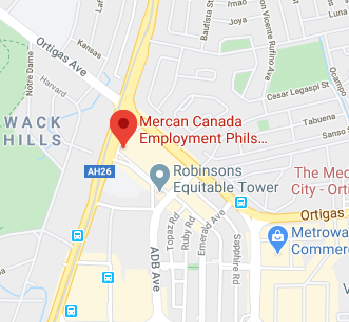Study permits: Letters of acceptance
On this page
Establishing acceptance to a designated learning institution (DLI) [R219(1)]
Immigration, Refugees and Citizenship Canada (IRCC) strongly encourages DLIs to use the new template provided for the letter of acceptance (PDF, 73.68KB). It contains all of the necessary information and will facilitate the processing of study permit applications.
Students can establish acceptance to a course or program of study by showing officers an original letter of acceptance (or a scanned copy if the applicant is applying through e-Apps) from the DLI that they will be attending.
The following list of items should be included in the letter of acceptance from the DLI submitted by the student at the time of their study permit application:
- full name, date of birth and mailing address of the student;
- name of the institution and official contact;
- DLI number;
- telephone, fax, website and email information for the institution;
- type of school or institution (e.g., private or public and, in cases where the institution is publicly funded but not a university, indication as to whether the institution is a post-secondary college, a post-secondary community college or a post-secondary technical college);
- the field or program of study, level and year of study into which the student was accepted;
- the estimated duration or date of completion of the course;
- date on which the selected course of study begins;
- the last date on which a student may register for a selected course;
- the academic year of study that the student will be entering;
- whether the course or program of study is full-time or part-time;
- the tuition fee;
- scholarships and other financial aid (if applicable);
- an expiry date indicating the date until which the letter of acceptance is valid;
- any conditions related to the acceptance or registration, such as academic prerequisites, completion of a previous degree, proof of language competence, etc.;
- clear identification of the educational institution, normally confirmed through its letterhead;
- for study in Quebec, the requirement of a Quebec Acceptance Certificate (CAQ); and
- where applicable, licensing information for private institutions normally confirmed through letterhead.
See a sample letter of acceptance (PDF, 73.68KB).
Letter of acceptance exemptions [R219(2)]
A letter of acceptance isn’t required if, the application for a work or study permit of the family member of a foreign national is approved in writing before the foreign national enters Canada. This exemption does not guarantee the approval of a study permit application.
Note: The family member of a foreign national who applies for a work or study permit from within Canada is not exempt from the requirement to obtain a letter of acceptance when applying for a study permit.
Conditional letters of acceptance
When successful completion of a prerequisite course or program is required before admission into a program of study, the DLI may issue a conditional letter of acceptance to a foreign national. This letter should be submitted when the applicant applies to enter Canada as a temporary resident.
When the completion of a prerequisite program, such as English as a second language (ESL) or French as a second language (FSL), is a condition for enrolment in a subsequent program, officers issue a study permit for the length of the prerequisite program plus 1 year.
Students who successfully complete their prerequisite program will then need to apply for a new study permit and demonstrate they have completed the admission requirements.
Missions overseas should still take into consideration the bona fides and available funds for the main program, should the prerequisite be passed, before issuing the travel document for the prerequisite study program.
Note:Â Foreign nationals who have been issued a study permit for a prerequisite program are not eligible to work off campus in Canada until they begin their main program of study.
Joint programs involving more than one institution
Students applying for a study permit for an academic program that is jointly offered by more than one institution in Canada (that is, a university and a college) submit an official letter of acceptance that clearly indicates this. Both institutions must be designated by the province or territory to host international students. The letter of acceptance should be issued by the DLI in Canada that will be granting the degree, diploma or certificate (or, in cases where a degree, diploma or certificate is granted jointly by more than one institution, the letter of acceptance should be issued by the institution at which students will begin their studies). The letter should note that the program of study includes courses or sessions (semesters or courses will be specified) given at the other institution (institution name, type [college, university, technical institute, etc.], and location will be specified).
Officers should associate the study permit application to the DLI that will be granting the degree or diploma (or, where a degree or diploma is granted jointly by more than one institution, the institution at which students will begin their studies).
Officers should also manually input into the Remarks the name of the second institution at which the program is offered.
Study permit renewals
If officers have any doubts when reviewing a study permit renewal application, they are authorized under subsection R220.1(4) to request that students provide evidence that they are or were in compliance with the conditions of their study permit. The applicant may be requested to submit a letter of enrolment or transcript issued by a DLI to indicate that they are enrolled and actively pursuing studies at a DLI.
Concerns about an institution
Although, as of June 1, 2014, the issuance of study permits is limited to those accepted at a DLI, there may be cases where students present a letter of acceptance from an educational institution where concerns exist about its academic or administrative practices.


